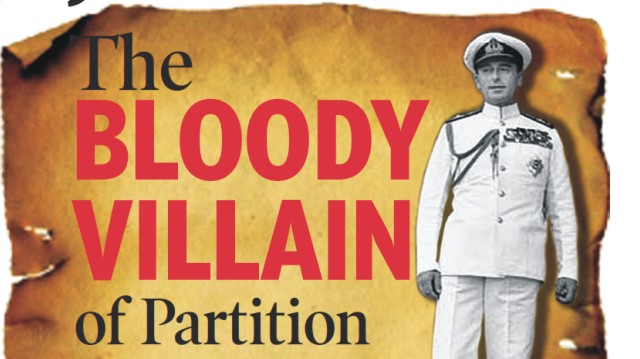
AUGUST 15, 1947. 600,000 lives lost, 14 million displaced. A day permanently engraved in the collective Punjabi memory with the blood of millions of our compatriots. We became a people condemned to always remember the massacre of Punjabis on both sides of a line that the Raj drew across our land and souls.
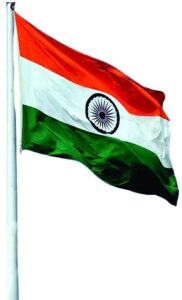 As the tricolor goes up every August 15 morning, and we celebrate the day India became independent, Punjabis across the world cannot but help remember how Radcliffe’s Line scorched the earth beneath their feet, cutting through towns, villages, homes and hearths.
As the tricolor goes up every August 15 morning, and we celebrate the day India became independent, Punjabis across the world cannot but help remember how Radcliffe’s Line scorched the earth beneath their feet, cutting through towns, villages, homes and hearths.
Were the Partition massacres avoidable, preventable? Why was August 15 chosen as the date? Who could have prevented the massacres? Who possibly had an idea that massacres could happen? Who did not do his duty? Who is the villain of the piece in this most gory chapter of history whose burden Punjabis carry at all times, a burden that we become acutely aware of every August 15 as the tricolor goes up?
For several days in the run up to August 15, 1947, it was repeatedly pressed upon Viceroy Lord Mountbatten that it was of utmost importance that the details of the boundary award, finalised by Radcliffe, be made available to the administration in view of the clear and present danger of widespread riots.

Time and again, Mountbatten and his office acknowledged that all efforts would be made to ensure that the details of the boundary award are available at the earliest.
In fact, both sides agreed that even a time lag of a few hours could prove crucial. At one stage, Mountbatten, in writing, even said that he will ensure that tanks are out in the streets and aircraft are in the air if need be, to prevent any possibility of riots.
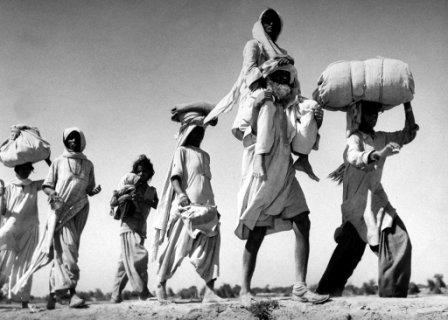 But when the day came, August 15, 1947, the tanks were not on the streets, the aircraft were not in the air. Millions died as the subcontinental blood seared the soul of earth.
But when the day came, August 15, 1947, the tanks were not on the streets, the aircraft were not in the air. Millions died as the subcontinental blood seared the soul of earth.
For decades, the truth lay buried about who was responsible. A strange and untruthful popular version of history was allowed to sink into public memory.
Much of the popular knowledge of events leading up to August 15, 1947 suffered from the handicap that all the papers and documents dealing with the viceroyalty of Mountbatten were not available for a long time. (The official documents dealing with the transfer of power in India were not to be officially released until 1999, thankfully, in 1967, British Prime Minister Harold Wilson decided that all documents be published. That’s how the ToP Documents came to be published.)
But ever since the The Transfer of Power documents, a series of 12 volumes, containing virtually all documents dealing with the transfer of power from Britain to India and Pakistan and published under the editorship of Prof Mansergh, a distinguished historian, came out, the picture should have become much clearer. The documents contained all official, secret or top secret documents. But sadly, till legal luminary like H M Seervai joined the dots, no one pointed out to us so clearly as to who was the real villain.
 Now we know. Lord Mountbatten was the biggest villain. We know this because there is documentary proof of it. But for some strange reasons, our schools do not tell children as much, our media happily peddles a version of Partition politics that should not have held true after the secrets came out.
Now we know. Lord Mountbatten was the biggest villain. We know this because there is documentary proof of it. But for some strange reasons, our schools do not tell children as much, our media happily peddles a version of Partition politics that should not have held true after the secrets came out.
“ I shall see to it that there is no bloodshed and riot. I am a soldier, not a civilian. Once partition is accepted in principle, I shall issue orders to see that there are no communal disturbances anywhere in the country. . . . I shall not use even the armed police, I will order the Army and Air Force to act and I will use tanks and aeroplanes to suppress anybody who wants to create trouble.”
— Mountbatten, May 14, 1947
So sickening is the story that you will be aghast that details were suppressed even till the last hour, merely to ensure that Mountbatten’s address to the Constituent Assembly, a state banquet and an evening party go off smoothly. It is all there in Mountbatten’s own words in the ToP documents.
But allow us to tell you the complete story, each word, each sentence, each para, based on documents that have never been challenged. Incontrovertible evidence exists now to understand that the 1947 massacres were preventable, fair amount of warning was available, top officials were badgering Mountbatten to help them put in place forces and arrangements to stop riots and save lives. Vast amounts of evidence has come up now to prove this.
Punjab Today weaves this fascinating, heartbreaking story that will make you angry, seething with rage at the follies of our rulers, but will enrich you with the power of truth.
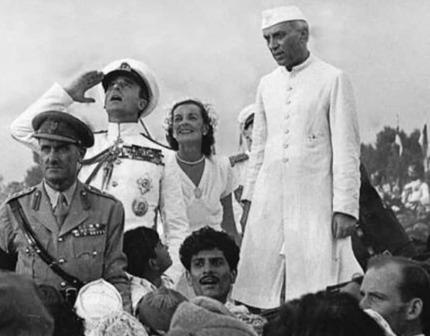 In his speech at the last of the banquets given in Mountbatten’s honour, Nehru was very affectionate. “You came here, Sir, with a high reputation, but many a reputation has foundered in India. You lived here through a period of great difficulty and crisis, and yet your reputation has not foundered. That is a remarkable feat.”
In his speech at the last of the banquets given in Mountbatten’s honour, Nehru was very affectionate. “You came here, Sir, with a high reputation, but many a reputation has foundered in India. You lived here through a period of great difficulty and crisis, and yet your reputation has not foundered. That is a remarkable feat.”
Once you are through with this Punjab Today story, you may have a very different view.
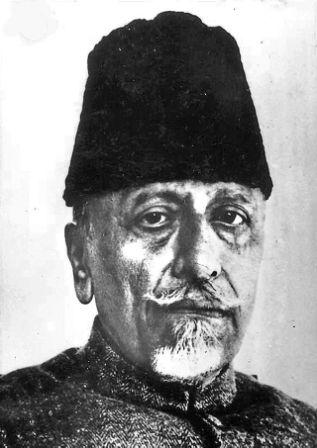
MAULANA AZAD held Mountbatten responsible for the Partition massacres, but neither the ToP documents were out, nor the Mountbatten Papers had been published, when he wrote his account.
It was clear that once the Partition was decided upon, any orderly transfer of power in the Punjab and Bengal could only be possible if the demarcation of boundary in Punjab and Bengal was clear, in time, leaving scope for intervention by the forces, police or army, and arrangements for safety and security of those migrating.
Radcliffe’s Boundary Commission was to demarcate the boundaries after ascertaining contiguity of majority areas of Muslims and others and also taking into account “other factors”. No definition of this “other factors” was provided, and at least in Punjab, a large number of inhabitants hoped that the “other factors” will definitely include the ownership of land.
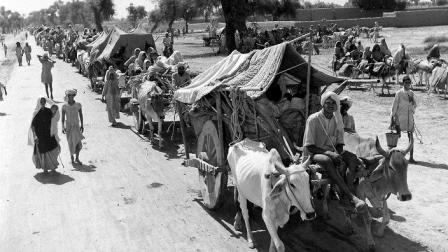 One thing was clear that the part that the Boundary Commission was to play was to have a great impact on orderly transfer of populations, and therefore on the orderly transfer of power.
One thing was clear that the part that the Boundary Commission was to play was to have a great impact on orderly transfer of populations, and therefore on the orderly transfer of power.
Many have argued that the catastrophe of the Partition being accompanied by massacres of such scale could not have been foreseen, but thankfully, these claims have been nailed already by many historians and authors.
Both Congress and Muslim League had made an appeal for peaceful transfer of power and assured that they will accept the award of the Boundary Commission whatever it may be. The award was to be a signal to get up and collect whatever belongings they had, or could, and rush east or west, depending upon what your God was called.
But while what that award was to be was important, what was crucial was when one could get to know of it. Mountbatten too knew this. This is clear from the fact that even when the date of interim transfer of power was fixed as October 1, 1948, he did express a fear that “It is possible that the Boundary Commission may not be ready with their recommendations.” (Transfer of Power, Vol X, p. 814).
Naturally, a date for transfer of power was to be fixed, and it is logical to presume that it must have been pre-fixed, with reference to the date on which the Boundary Commission was to give its award, and when that award could have been communicated to a large number of people and the security forces given enough scope to intervene to ensure peaceful migration.
Since a date for transfer of power was to be fixed, it was logical to presume that it would be fixed only after determining when the Boundary Commission would be able to give its award, and when that award could have been communicated to a large number of people and the security forces given enough scope to intervene to ensure peaceful migration. That clearly means that the key question for anyone looking into Partition massacres must be: When was the award ready? Stay with the narrative to understand how a tale of sin lies hidden!
This brings us to the key question of when was the award ready. The Vol XII of ToP enables us to answer that question with certainty, provided we shuffle back and forth and weave the story from a few documents lumped in a heap of some 500 odd documents, the diaries entries of Campbell-Johnson, Philip Ziegler’s account of Mountbatten, and Prof Mansergh’s own Notes.
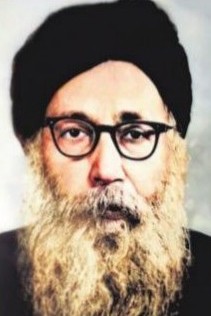
Evan Jenkins, the Governor of Punjab, warned Mountbatten throughout of the potential for trouble in Punjab. Scores of such warnings were available to Mountbatten. Many authors, before and after the publication of Transfer of Power documents, have proven this. Jenkins made Mountbatten aware of his talks with Giani Kartar Singh who had warned of bloodshed if Punjab was left to its own fate after Partition. (This is a July 10 conversation, quoted in The Last Days of the British Raj by Leonard Mosley.)
The Partition was announced on June 3, 1947. The Khizar ministry had resigned on March 2, 1947 (That this was as a direct consequence of Atlee’s statement of February 20, 1947 is a separate matter.) Punjab was under Governor’s rule. The impact was foreseen. While the Partition plans were evolving in India, Azad had an interview with Mountbatten.
May 14, 1947
“I had also asked Lord Mountbatten to take into consideration the likely consequences of the partition of the country… If the country was divided in such an atmosphere, there would be rivers of blood flowing in different parts of the country and the British would be responsible for the carnage.” (Azad, IWF pp 189-190)
And how well aware was Mountbatten, and how, presumably, determined was he to act to prevent it:
“Without a moment’s hesitation, Lord Mountbatten replied, ‘At least on this one question I shall give you complete assurance. I shall see to it that there is no bloodshed and riot. I am a soldier, not a civilian. Once partition is accepted in principle, I shall issue orders to see that there are no communal disturbances anywhere in the country. If there should be the slightest agitation, I shall adopt the sternest measures to nip the trouble in the bud. I shall not use even the armed police, I will order the Army and Air Force to act and I will use tanks and aeroplanes to suppress anybody who wants to create trouble.” (Azad, IWF, p 190) This was May 14, 1947.
IF WE now turn our attention to the May 23, 1947 minutes of the Cabinet Committee Meeting in London, they read: “…it was possible that serious disorders might break out in the Punjab and certain other Provinces at any time after the announcement of the Plan for partitioning India.”
Also, it is clear that Mountbatten had made the Prime Minister aware of his intention to use force to quell any rioting, since the minutes continue to say: “It was the Viceroy’s considered view that the only hope of checking communal warfare was to suppress the first signs of it strongly and ruthlessly, using for this purpose all the force required, including tanks and aircraft…” (Transfer of Power Vol. X, p. 967)
July 16, 1947
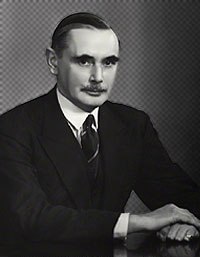
Abbot, Secretary to Punjab Governor Evan Jenkins, wrote to Abell, Private Secretary to Mountbatten, on June 16, 1947, requesting that his boss has asked for “as much advance intimation, not only of the date of the award but of its contents as can be given. Whatever the date and whatever government will be in power when the award is announced, it will be necessary to take Continued from Page 5 pre cautions, especially in those districts which are likely to be affected, particularly those in the central Punjab.” (Transfer of Power, Vol. XII, p. 191)
July 21, 1947
Abell, Private Secretary to Mountbatten, wrote to Beaumont (ICS), Secretary to Radcliffe, informing him that Mountbatten had met Jenkins and Jenkins had said that even a few hours advance warning would help. But please read the relevant quote to gauge the clarity with which Jenkins conveyed it to the Viceroy and the grave importance which he attached to every single hour that he could get:
“The Governor represented to him that it would be of great practical advantage if he could be given advance information of the general purport of the award of the Boundary Commission when the time comes. Even a few hours’ warning would be better than none as the nature of the award would affect the distribution of police and troops.” (Transfer of Power, Vol. XII, p. 279)
And clearly, Jenkins also expected Mountbatten to get wind of the award, nay, fairly accurate information about it, or at least expected Radcliffe to share it at least partially in advance, for the same quote continues:
“If it is possible to give us an abstract here in advance, we could telegraph it in secret cipher to the Governor.” (Transfer of Power, Vol. XII, p. 279)
We will soon turn our attention to the import of this remark.
* * *
I NOW make a little break from strictly chronological sequence that I intend to weave, because between the July 16 letter and the resultant July 21 response it triggered, another great event had happened. The British Parliament enacted the Indian Independence Act, 1947 on July 18, 1947.
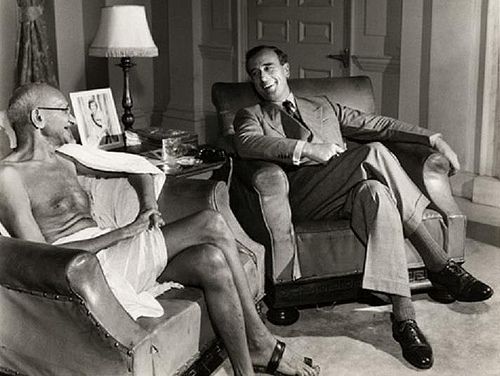 So the July 21, 1947 letter, as well as every single communication that moved after July 18, 1947 was penned with the fullest knowledge that Mountbatten’s authority over un-divided India would end on the midnight of August 14.
So the July 21, 1947 letter, as well as every single communication that moved after July 18, 1947 was penned with the fullest knowledge that Mountbatten’s authority over un-divided India would end on the midnight of August 14.
Clearly, if Mountbatten was to stick true to his intention of doing everything in his power to quell any communal disturbance and was to remain empowered so that he could “order the Army and Air Force to act” and “use tanks and aeroplanes to suppress anybody who wants to create trouble”, then it was imperative that the Radcliffe Award should come well before August 15.
July 22, 1947
Mountbatten wrote to Radcliffe on July 22, 1947 informing him of his talks with the Punjab Partition Committee. He said he had assured the committee that he would write to Radcliffe to press for urgency for the award. Clearly, by writing this letter, he was fulfilling that assurance.
“It was emphasized that the risk of disorder would be greatly increased if the award had to be announced at the very last moment before the 15th August…I know that you fully appreciate this, but I promised that I would mention it again to you, and say that we should all be grateful for every extra day earlier that you could manage to get the award announced. I wonder if there is any chance of getting it out by the 10th?” (Transfer of Power, Vol. XII, p.305)
July 23, 1947
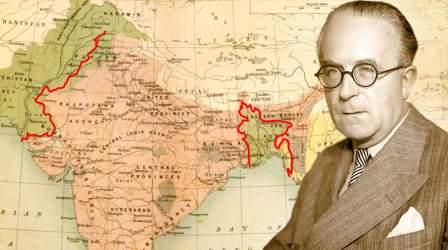
It was never the case that Radcliffe was not aware of this. And he did respond to Mountbatten’s missive. “I will certainly bear in mind the importance of the earliest possible date for the award…I do not think that I could manage the 10th. But I think that I can promise the 12th, and I will do the earlier day if I possibly can.” (Transfer of Power, Vol. XII, p. 305)
August 6, 1947
So conscientious was Mountbatten, and so well aware of the gravity of the matter, that he did not forget to assure Governor Evan Jenkins that he has not forgotten his request for advance warning, or the import of it. On August 6, 1947, Mountbatten wrote to Jenkins:
“I have not forgotten your request that you should be given advance warning of the nature of the Boundary Commission’s award and I will try to secure this.” (Transfer of Power, Vol. XII, p. 557)
August 8, 1947
Abell, Private Secretary to Mountbatten , wrote to Abbott, Secretary to Punjab Governor Jenkins, saying,
“The award itself is expected within the next 48 hours, and I will let you know later about the probable time of announcement. Perhaps you would ring me up if H.E. the Governor has any views on this point?” (Transfer of Power, Vol XII, p. 579)
August 9, 1947
Abbot (Sec to Jenkins) responded to Abell (PS to MB): “The Governor is taking law and order action on the reliminary information given. He trusts final version will be very precise and will be related as far as possible to existing administrative units and borders. To enable us to arrange publicity and administrative arrangements he would like the document in official form 24 hours before it is released.” (Transfer of Power, Vol. XII, p. 615)
Please mark the date once again. August 9, 1947, since this is a date that will be very very important to our purpose. We will shortly revert to this.
August 13, 1947
Punjab Governor writes to Mountbatten describing how the populations are trembling with fear and his word, in fact, is “terrified”.
 Meanwhile, on August 11 and again, on August 13, there was a spate of messages from various top echelons of Army brass repeatedly referring to the uncertainty being caused by the delay in the Punjab Boundary Commission Award’s announcement and about the demands being made upon the forces, particularly the Punjab Border Force, to asking for troops to accompany those who have already chosen to migrate without waiting for the Award’s announcement.
Meanwhile, on August 11 and again, on August 13, there was a spate of messages from various top echelons of Army brass repeatedly referring to the uncertainty being caused by the delay in the Punjab Boundary Commission Award’s announcement and about the demands being made upon the forces, particularly the Punjab Border Force, to asking for troops to accompany those who have already chosen to migrate without waiting for the Award’s announcement.
There is no end to documentation of the wild rumours doing the rounds in such an atmosphere, and we all really do not need presentations in a seminar to understand what rumours can do in a communally surcharged environment when countries are being vivisected and millions are unaware whether they need to run to defend or rush to kill.
August 14, 1947
This was the day for Mountbatten to send a telegram to Lord Listowell, the Secretary of State for India. And as I read out from this telegram, please bear in mind the office of the Governor of Punjab had requested Mountbatten’s office for an advance copy of the award. Now, Mountbatten is clear on one thing in his telegram to Listowell, and that is that he at least has no knowledge at all of the award.
Mark the vehemence with which Mountbatten states: “I personally have scrupulously avoided all connection with Boundary Commissions, including interpretation of their terms of reference and putting before them the various points of view forwarded to me….Radcliffe sent in the Bengal award on 12th August. This contained the allocation of Chittagong Hill Tracts to Pakistan and I was warned that there would be serious reactions amongst Congress leaders at this…I have decided not to publish the awards myself.” (Transfer of Power, Vol XII, p. 733)
While I mention this telegram, and mark it out for its great importance, perhaps it was not so for Mountbatten. He must be aware of its timing. It was sent at 10:15 pm, and was to reach London at 2:30 am of August 15, 1947. No more was Mountbatten the Viceroy of undivided India, and the armed forces had just been divided. Besides, Listowell had already ceased to be the Secretary of State for India.)
August 15, 1947
The day was spent amid euphoria in Delhi and hell broken loose in Punjab.
August 16, 1947
Governor General Mount-batten sent his personal report to Listowell. This Personal Report was merely of academic interest, and was sure to be buried among many, many similar documents since Raj had pulled out, and Listowell was no more the Secretary of State for India. So, perhaps Mountbatten could have written anything in it, and could have hoped to get away with it.
“It was on Tuesday, 12th August, that I was finally informed by Radcliffe that his awards would be ready by noon the following day, just too late for me to see before leaving for Karachi. For some time past, I and my staff had been considering the question of when and how these awards should be published. From the purely administrative point of view, there were considerable advantages in immediate publication so that the new boundaries could take effect from 15th August, and the officials of the right Dominion could be in their places to look after the districts which had been allotted to their side before that date.
However, it had been obvious all along that the later we postponed publication, the less would the inevitable odium react upon the British.” (Transfer of Power, Vol XII, p.760; emphasis mine)
THIS WAS the same Mountbatten who was so well aware of the importance of every single day in the announcement of the Punjab Boundary Award. In fact, he had been in communication with his Governor on the point that even a few hours’ advance warning would help. So much so that Mountbatten himself had assured the Punjab Partition Committee that he would once again press Radcliffe for advancing the Award announcement.
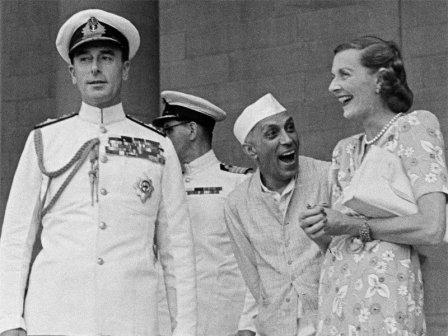 Now, the Award was to be ready, and Mountbatten wrote that he knew 24 hours in advance that it was to be ready on August 13, and that he was to leave for Karachi and it was not possible for him to see it, conceded that earlier announcement would have been better because of administrative reasons, and then scribbled something too shocking for anyone who was to pursue the story chronologically: “However, it had been obvious all along that the later we postponed publication, the less would the inevitable odium react upon the British.”
Now, the Award was to be ready, and Mountbatten wrote that he knew 24 hours in advance that it was to be ready on August 13, and that he was to leave for Karachi and it was not possible for him to see it, conceded that earlier announcement would have been better because of administrative reasons, and then scribbled something too shocking for anyone who was to pursue the story chronologically: “However, it had been obvious all along that the later we postponed publication, the less would the inevitable odium react upon the British.”
I have already mentioned earlier the thorough consensus among virtually everyone involved that the best course was the announcement of the award as early as possible. (You do remember “Even a few hours (advance) warning…”. Don’t you?)
I had marked out earlier the date August 9, 1947, as a date which we will soon see is very very important to our purpose here.
On August 9, 1947, was also happening a then rather routine event, but which on this day was to be of momentous importance. The Viceroy’s 69th Staff Meeting. The Transfer of Power, Vol XII contains the minutes of that meeting in good detail. Attendees included Lord Ismay (Chief of Viceroy’s Staff), Abell (Private Secretary to the Viceroy), Christie (I.C.S., Joint Private Secretary to the Viceroy), Campbell-Johnson (Press Attache to the Viceroy), Lt.Col. Erskine Crum (Conference Secretary to the Viceroy). These were all the attendees.
V P Menon was not there. So, no Indian attended it, no Indian is mentioned as having been informed of the decisions in this meeting and no mention of those decisions is made in the next meeting of the Viceroy’s Staff. By now, we have seen that Governor Evan Jenkins was of the firm view that Award should be announced as early as possible, and that Mountbatten had repeatedly and throughout agreed with him. The meeting, when it took the decisions that it took, made no mention of any consultation with Governor Jenkins, and there is nothing on record to suggest that Governor Jenkins was ever informed of the decisions of this meeting.
“It was stated that Sir Cyril Radcliffe would be ready by that evening to announce the award of the Punjab Boundary Commission. The VICEROY recalled that he had asked for the award to be ready by 10th August.
However, it was now for reconsideration whether it would in fact be desirable to publish it straightaway. Without question, the earlier it was published, the more the British would have to bear the responsibility for the disturbances which would undoubtedly result. Lord Ismay gave his opinion that it would be better to defer the publication of the award until 14th August. Sir George Abell said that he had asked Sir Evan Jenkins for his opinion as to the best date for the announcement. He pointed out that there were administrative advantages from early publication. The VICEROY emphasized the necessity for maintaining secrecy, not only on the terms of the award, but also on the fact that it would be ready that day.” (Transfer of Power, Vol XII, p.611)
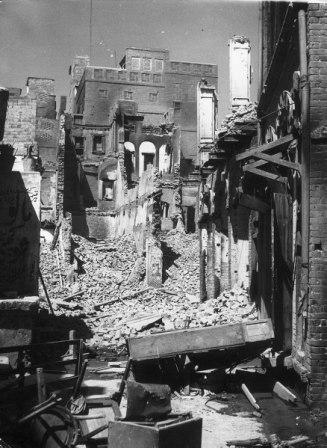
I now quote from the Minutes of the next meeting of the Viceroy’s Staff, dated August 12, 1947. Considering that a momentous decision was taken in the earlier meeting held only three days earlier to suppress the award, mark how brief are the Minutes for this meeting.
Mark also that V P Menon was present at this meeting: “The Meeting discussed the action necessary as a result of the fact that it appeared impossible to publish the award of the Boundary Commission as early as it was hoped. H.E. the VICEROY (i) directed P.S.V. (Abell, private secretary to viceroy) to inform the Governors of the Punjab and Bengal of the delay in this matter; (ii) directed J.P.S.V. (joint private secretary to viceroy, Christie) to take all other action consequent upon the decision reached, including a telegram to the Secretary of State.”(Transfer of Power, Vol XII, pp. 673-674)
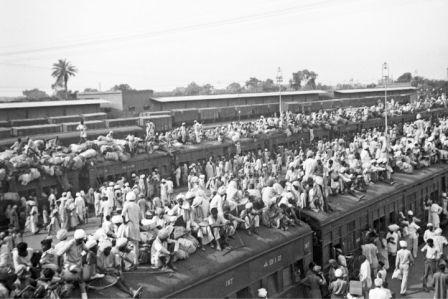 I may mention here that we also have an account from Campbell-Johnson (Mission with Mountbatten, London, 1951) in which he describes a meeting with Radcliffe wherein Radcliffe explained that both Punjab and
I may mention here that we also have an account from Campbell-Johnson (Mission with Mountbatten, London, 1951) in which he describes a meeting with Radcliffe wherein Radcliffe explained that both Punjab and
Bengal awards were ready but the Sylhet award was not. He also states that Mountbatten was greatly relieved when advised that it would be physically very difficult for all three awards to come into his possession before his return to Delhi from Karachi on the evening of 14 August, or for the texts to be printed and available before the 16th — Independence Day itself being a holiday. (p.153).
(And since Christie was also sent to speak to Radcliffe – An entry in Christie’s diary for Aug 12 reads: “The Staff Meeting, twice postponed, began at 5 and went on for 2 ¾ hours. Then we got on to the Boundary Commission – V.P. (V.P. Menon) showed a quite unexpected flare up of communal bias when he heard about the C (Chittagong) H (Hill) T (Tracts). H.E. most anxious to postpone publication till after 15th. Pug (Lord Ismay) against this for administrative reasons, H.E. adamant: sent Alan (Mr. Campbell- Johnson) and me to Sir C.R. (Radcliffe) to arrange the dates. C.R. refused flat – too many people know it’s ready. Stretched a point to redate 13th; will arrive complete after H.E. has gone to Karachi. Back to H.E. who had had a couple. Didn’t like it, but swallowed it…” (This entry is quoted in ToP in the editor’s note.)
I revert to the Minutes of the 70th Staff Meeting, which ended by 8 p.m. The telegram of Mountbatten to Evan Jenkins was sent promptly, by 11.15 pm. Here is what it said: “It is now clear that the complete awards for Punjab and Bengal will not be ready for publication till 15th evening or 16th morning.” (p.674)
Now clear that they will not be ready till 15th or 16th? To whom? Detailed award was available on 9th, and Mountbatten had rather asked for these to be ready by 10th and was upset why they were ready a day earlier.
LET ME take you back to the Mountbatten’s Personal Report No. 17 of August 16 (from which I have quoted earlier too the paragraph in which he had said that ‘it had been obvious all along that the later we postponed
publication, the less would be the inevitable odium react upon the British.). In this very report, sent to Listowell, Mountbatten gives us details of interaction between himself and V.P.Menon on the subject which we have studied, and see how shocking is the import of these words:
“V.P. Menon went on to say that if the details of the award were given to them (the Indian leaders) before the 15th he thought they might well refuse to attend the meeting of the Constituent Assembly which I was to address. If given to them later in the day he thought they would refuse to come to the State banquet and the evening party. In any case he said that unless the situation were handled with the utmost care, the Congress would blow up… I decided that somehow we must prevent the leaders from knowing the details of the award until after the 15th August; all our work and the hope of good Indo- British relations on the day of the transfer of power would risk being destroyed if we could not do this.”
 So, while I have brought out how the Award was delayed by days, here is Mountbatten telling us how it was delayed by another few hours so that his banquet and his evening tea party go off smoothly. I shall refrain from inflicting you once again with the quote from Evan Jenkin’s office about ‘Even a few hours’ warning would be better than none’, and that had been the considered opinion of all, including Mountbatten, ever since July 21! In his speech at he last of the banquets given in his honour, Nehru was affectionate.
So, while I have brought out how the Award was delayed by days, here is Mountbatten telling us how it was delayed by another few hours so that his banquet and his evening tea party go off smoothly. I shall refrain from inflicting you once again with the quote from Evan Jenkin’s office about ‘Even a few hours’ warning would be better than none’, and that had been the considered opinion of all, including Mountbatten, ever since July 21! In his speech at he last of the banquets given in his honour, Nehru was affectionate.
“You came here, Sir, with a high reputation, but many a reputation has foundered in India. You lived here through a period of great difficulty and crisis, and yet your reputation has not foundered. That is a remarkable feat.”
The facts that have emerged, notwithstanding and rather in spite of the popular notion of history peddled by official Indian establishment, show that Lord Mountbatten was a man who was lying. Repeatedly lying. And was alone, and alone, responsible for no advance warning, no advance announcement of Award, no timely placement of troops.
For five days he kept secret what undivided India needed so urgently that even a minute lost could have been termed a sin. It is time the people of Punjab, on both sides of the line that Sir Cyril Radcliffe drew, know who was the Villain of Partition. It is time to junk the outdated popular version of history. Truth has superseded our collective amnesia.
Let it dawn on our future generations. ![]()
___________
Also Read:
Independence Day: Begumpura to Bhajanpura
Har Ghar Tiranga: Symbols over Substance
Drug Menace Cannot Be Addressed Without Addressing the Root Cause of Supply Chain
Deliberate Destruction of Indian Railways
Mughal Gardens – Name Changed, But Why?
Will SC Order Be Implemented When There Is Political Patronage For Hate Speech?
Time to build on synergy of ground energy & politics
Punjab – How a deadly cocktail of Agri-Water-Energy nexus going to destroy it?
Disclaimer : PunjabTodayTV.com and other platforms of the Punjab Today group strive to include views and opinions from across the entire spectrum, but by no means do we agree with everything we publish. Our efforts and editorial choices consistently underscore our authors’ right to the freedom of speech. However, it should be clear to all readers that individual authors are responsible for the information, ideas or opinions in their articles, and very often, these do not reflect the views of PunjabTodayTV.com or other platforms of the group. Punjab Today does not assume any responsibility or liability for the views of authors whose work appears here.
Punjab Today believes in serious, engaging, narrative journalism at a time when mainstream media houses seem to have given up on long-form writing and news television has blurred or altogether erased the lines between news and slapstick entertainment. We at Punjab Today believe that readers such as yourself appreciate cerebral journalism, and would like you to hold us against the best international industry standards. Brickbats are welcome even more than bouquets, though an occasional pat on the back is always encouraging. Good journalism can be a lifeline in these uncertain times worldwide. You can support us in myriad ways. To begin with, by spreading word about us and forwarding this reportage. Stay engaged.
— Team PT


Copyright © Punjab Today TV : All right Reserve 2016 - 2025 |